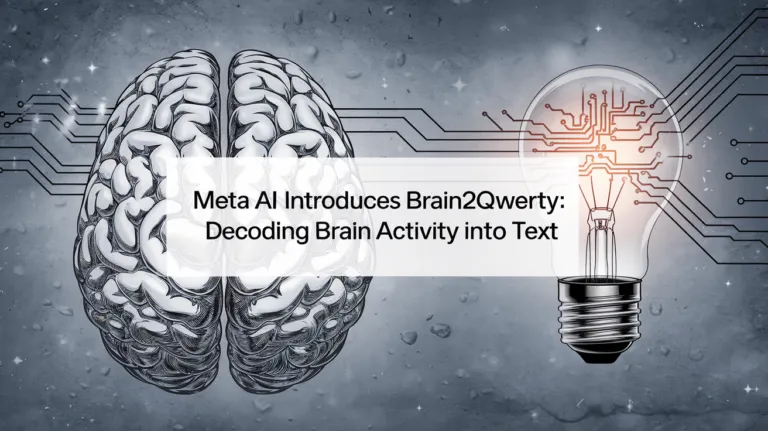
💡 Meta AI has introduced Brain2Qwerty, a groundbreaking AI model capable of decoding human brain activity to predict typed text without requiring brain surgery.
Brain-computer interfaces (BCIs) have enabled individuals with paralysis or speech impairments to communicate. However, most existing systems rely on invasive implants, which involve significant medical risks. Meta AI’s Brain2Qwerty presents a non-invasive alternative, using brain signals to predict text entry on a keyboard.
🔬 Experiment and Results
The study involved 35 healthy volunteers, whose brain activity was recorded using electroencephalography (EEG) and magnetoencephalography (MEG) while they typed memorized sentences on a QWERTY keyboard. AI was then trained to decode these brain signals into text.
📊 Key Findings:
• MEG-based predictions had a Character Error Rate (CER) of 32%.
• EEG-based predictions had a higher error rate of 67%.
• The best-performing participants achieved a remarkable 19% error rate with MEG.
• The AI-powered language model could automatically correct some typing errors.
🚀 Future Applications
This breakthrough could enable hands-free communication for individuals with conditions like ALS, paralysis, or anarthria (loss of speech ability)—without requiring brain surgery.
Meta AI researchers are working on real-time implementation to make this technology widely accessible. This innovation could redefine the future of brain-computer interfaces.